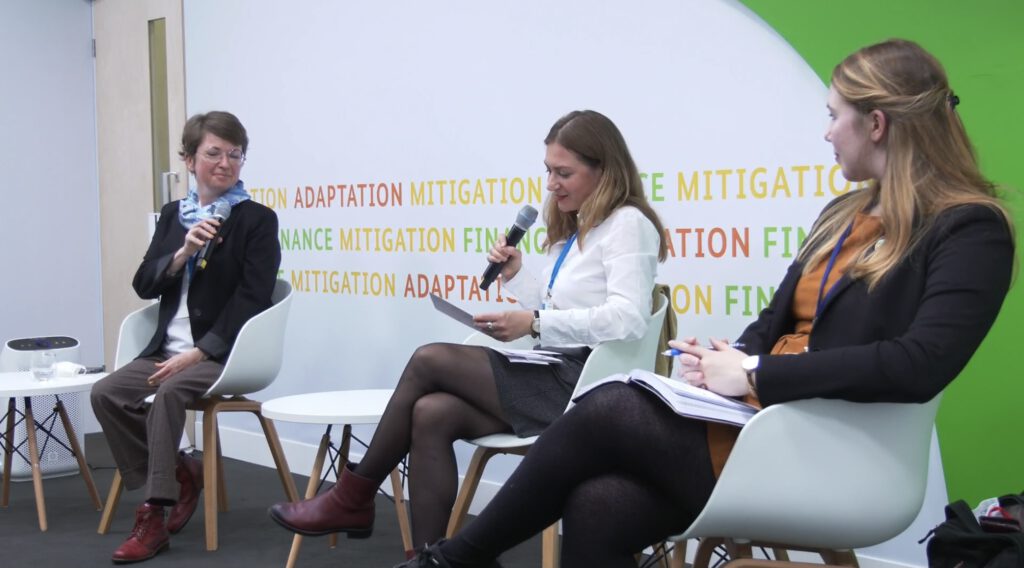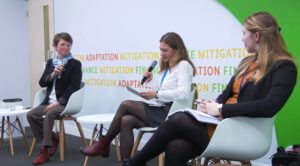Activities
GDL @ COP26: International Climate Diplomacy

Format
Topic
Politicans, policymakers and activists all came together in Glasglow for COP26 on November 8, 2021. At the same time, Germany is still in the process of forming a new government. To discuss the opportunities and challenges coming with said change of government, GDL member Sabrina Schulz hosted a session at the German Pavilion.
„Climate diplomacy is not only a matter of traditional diplomacy, but also of businesses, of civil society and of scientists“ – with this powerful statement, Sabrina Schulz opened the discussion in which a diverse panel of experts from different fields, also including other GDL members, participated. The moderator emphasised the responsibility that countries with an ambitious climate policy such as Germany have when it comes to defending and re-invigorating international cooperation on climate diplomacy.
Experts participating in the discussion were:
– Susanne Dröge, Researcher for Stiftung Wissenschaft und Politik
– Jennifer Tollmann, Senior Policy Advisor at E3G
– Michael Klor-Berchtold, Director-General for Economic Affairs and Sustainable Development at Federal Foreign Office
– Angelina Davydova, GDL member and environmental journalist
– Satyarupa Shekhar, GDL member and coordinator of the breakfreefromplastic movement
– Lina Li, GDL member and Senior Manager at adelphi
As Michael Klor-Berchtold put it: „The coming years must become a turning point for international climate protection. Ambitious protection is needed worldwide.“ The formation of the new government is an opportunity to generate more impetus in German climate policies. „It’s crucially important not to interact only with governmental bodies, academia and business, but also with civil society, experts from other areas [and] media professionals“, Angelina Davydova is convinced. On this panel, the international experts with various backgrounds utilised the opportunity to formulate their own expectations for the new German government.
Not everyone will be affected equally by climate change and especially fragile and conflict-ridden societies will suffer. From helping its allies abroad in turning the crisis into an opportunity for conflict resolution to a more aggressive plan to achieve the SDGs, members of the GDL summed up their expectations for the new German government in a video appeal.

Discussion between panelists at COP26
Theoretical Background
The coalition talks in Germany are happening against the background of massive global power shifts and the rise of emerging powers that do not share the “liberal consensus” that dominated international relations for many decades. At the moment, the successful implementation of the Paris Climate Agreement is at stake. In addition, the economic and social consequences of the pandemic as well as increasing unsustainable debt levels in many developing countries and emerging economies are diverting attention away from climate policy.
„This COP has proven that climate is an oasis in the desert. And that oasis is contingent on us finding ways to preserve it“, as Jennifer Tollmann summed up intently during the panel.
COP26 represented an opportunity to explain to the world which political priorities on climate policy and net zero, the energy transition as well as international climate finance international experts deem most important to ensure the high levels of climate protection needed. Satyarupa Shekhar pointed out that „the political situation in [her] country [India] doesn’t allow for people and communities to even defend biodiversity, conservation or protection of forests.“ Therefore, countries like Germany need to take on even more responsibility to make a positive contribution to international climate diplomacy. The new government will have to step up and rise to the challenge.